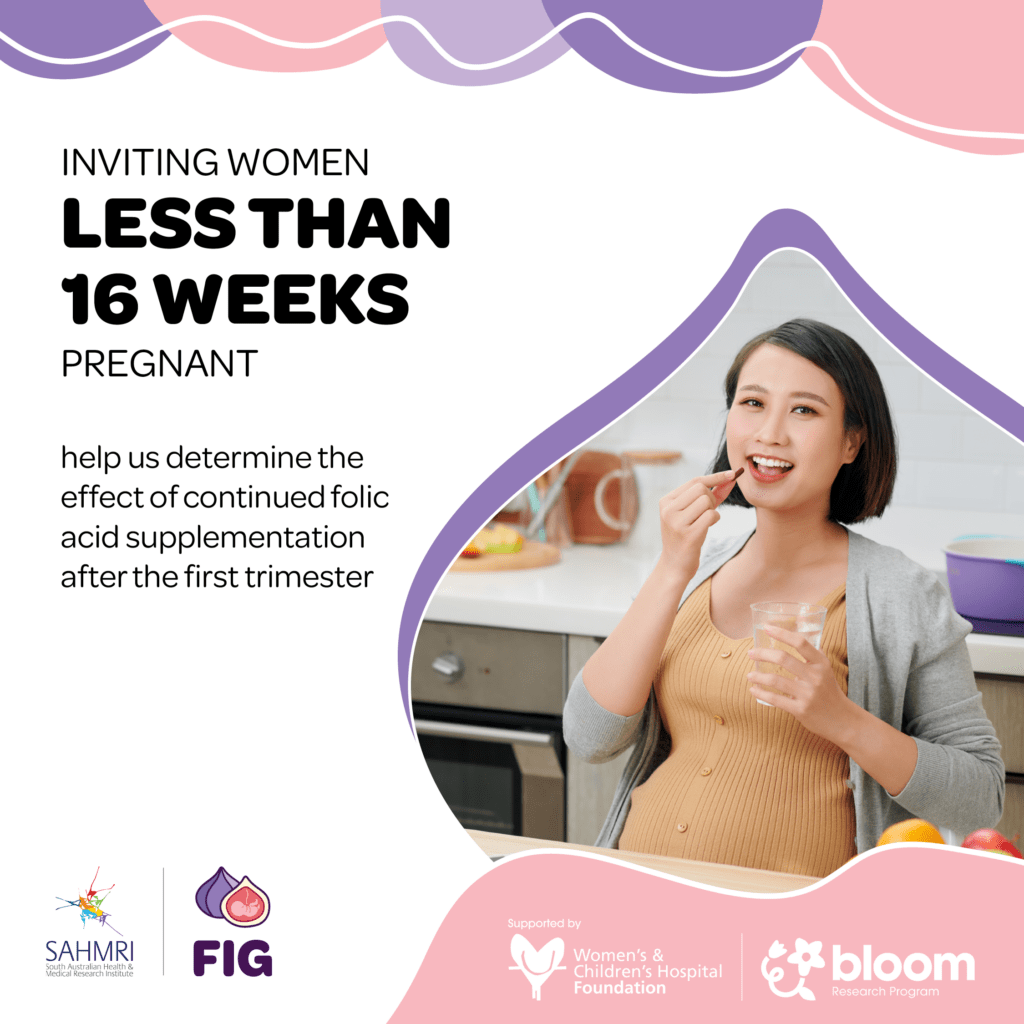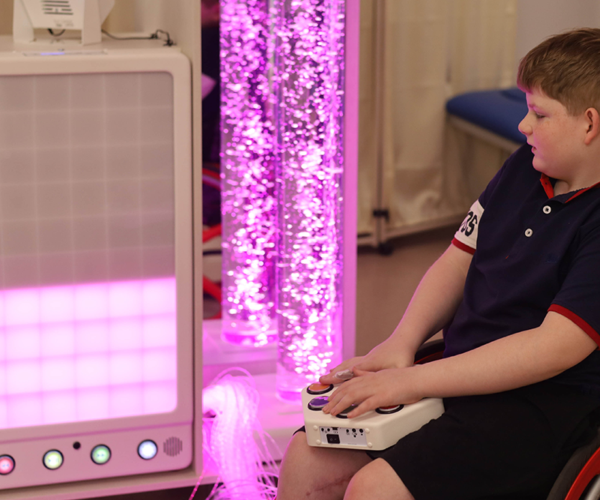Multivitamin supplement use before and during pregnancy is not unusual, with most Australian women taking a multivitamin supplement at some stage during pregnancy.
Folic acid supplementation before pregnancy and during the first trimester is widely accepted as the easiest and most important thing mothers can do to benefit the health of their baby, as it reduces the chances of having a baby with a neural tube defect, such as spina bifida. Folic acid is therefore included in most prenatal and pregnancy supplements. Women typically continue to take these supplements throughout the remainder of their pregnancy, yet it is not known whether it is beneficial to continue folic acid supplementation beyond the first trimester.
Professor Tim Green of the Folic Acid in Gestation (FIG) Study, supported by the Women’s & Children’s Hospital Foundation (WCH Foundation) through its Bloom Research Program, said:
“We know that folic acid is a game-changer in those early stages of pregnancy … we want to understand how, or if, it can help further into pregnancy.”
The FIG Study, led by Professor Tim Green and Associate Professor Luke Grzeskowiak of Flinders University, in partnership with the South Australian Health and Medical Research Institute (SAHMRI), will explore the impact of folic acid supplementation during the later stages of pregnancy and the early months of a baby’s life.
Associate Professor Luke Grzeskowiak said, “For most women, we don’t know whether it is good or bad to continue folic acid supplements after the neural tube has closed at the end of the first trimester. We need robust evidence to ensure we’re providing the best and safest advice to expectant mothers about supplement use.”
The FIG study will recruit nearly 3,000 mothers from across Australia to be involved in a randomised controlled trial. Study coordinator Brooke Spencer says that the study is looking for women less than 16 weeks pregnant to participate. Pregnancy supplements will be provided throughout the second and third trimester, and for three months after delivery, at no cost to participants. The study will also involve dietary surveys to assess folic acid consumed in food.
Brooke said, “Those interested in taking part can visit our website for more information, or contact us by emailing FIGStudy@sahmri.com.”

The FIG study will help future families and their doctors make informed decisions about folic acid supplementation during later pregnancy and lactation, while the study has the potential to change current Australian and global guidelines around folic acid supplementation.
Through our Bloom Research Program, we support large-scale research projects into women’s and children’s health, led by South Australian researchers and institutions. We are proud to be supporting this rigorous trial, which we hope will add to the evidence base regarding how best to promote healthy foetal development during pregnancy.




